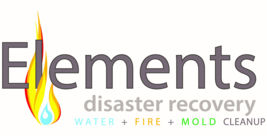The Different Types of Water Damage
Water damage can come in many different forms and can cause a wide range of damage. In this article, we will discuss the different types of water damage and give tips for keeping your Jacksonville water damage restoration clean.
There are four main types of water damage: structural, chemical, electrical, and thermal.
Structural Water Damage: Structural water damage is caused when water penetrates an area where it doesn’t belong, like the foundations of a building. This type of water damage is often more expensive to repair because it requires skilled labor and professional equipment.
Chemical Water Damage: Chemical water damage is caused by dissolved chemicals in the water. These chemicals can cause severe health problems if they leak into the environment or if they get into food or drink. Chemical water damage often smells bad and can make surfaces wet for weeks or months.
Electrical Water Damage: Electrical water damage occurs when broken wires cause flooding from an electric socket or circuit box. Electrical water damage is often difficult to spot until it causes serious problems, like fires.
Thermal Water Damage: Thermal water damage occurs when heat from the sun or a fireplace melts ice on your windows or inside your cooling system. This type of waterdamage is usually easy to spot because melted ice makes everything wetter inside and outside your home. Thermal waterdamage can also cause wood framing to rot
How To Clean Water Damage
As soon as you know water has damaged a surface, act fast to clean it up! By following these tips, you can minimize the chances of water damage becoming more extensive and costly.
– Look for obvious signs of water damage. Watch out for wet surfaces or surfaces that are showing evidence of swelling or leaking.
– Turn off all sources of water to the area being cleaned. Turning off the faucet will stop the flow of water and help preserve any evidence that may be left behind.
– Clear any objects from the area that could obstruct cleanup efforts. Loose wallpaper, furniture, and other large objects can be removed with a vacuum cleaner or broom. Smaller items such as toys and dishes can be picked up with your hands.
– Remove all wet materials immediately with a bucket or cloth. Don’t leave anything behind that could contain moisture and cause further damage down the line.
– Use a degreaser to remove any dirty debris left behind by cleaning supplies. Be careful not to overuse this product; too much degreaser can damage structural materials
Tips For Dealing With Mold
Mold can be a major headache for homeowners and businesses in Jacksonville, FL. Here are some tips for dealing with mold:
1. Make sure you have a Mold Cleaner on hand. A Mold Cleaner is the best way to get rid of mold quickly and comprehensively.
2. Keep your home and office clean and dry. If moisture accumulates, mold will grow rapidly.
3. Use an air purifier if you notice a lot of mold growth in your home or office. Mold spores are highly toxic, and an air purifier can help to reduce exposure to them.
4. Don’t wait until it’s too late to take action against mold. If you notice any signs of mold, like black spots on walls or ceilings, take action immediately!
Tips For Keeping Your Jacksonville Water Damage Restoration Professional
If you have water damage in Jacksonville, it is important to keep your restoration professional clean. Water and debris can cause the restoration professional to become mired in dirt and filth, which will slow down their work and increase the risk of further damage.
To keep your restoration professional clean:
1. Keep a bucket of fresh water at the work site. Use it to rinse off the restoration professional after every job.
2. Keep a hose handy to quickly wash down surfaces that may become dirty.
3. Avoid walking on the drywall while restoration is ongoing. This can create dust and debris that will need to be cleaned up later on.
Media Contact
Company Name: Elements Disaster Recovery
Email: Send Email
Phone: 904-513-3749
Address:1540 Monument Road #5
City: Jacksonville
State: Florida
Country: United States
Website: https://www.elementsdisasterrecovery.com/

